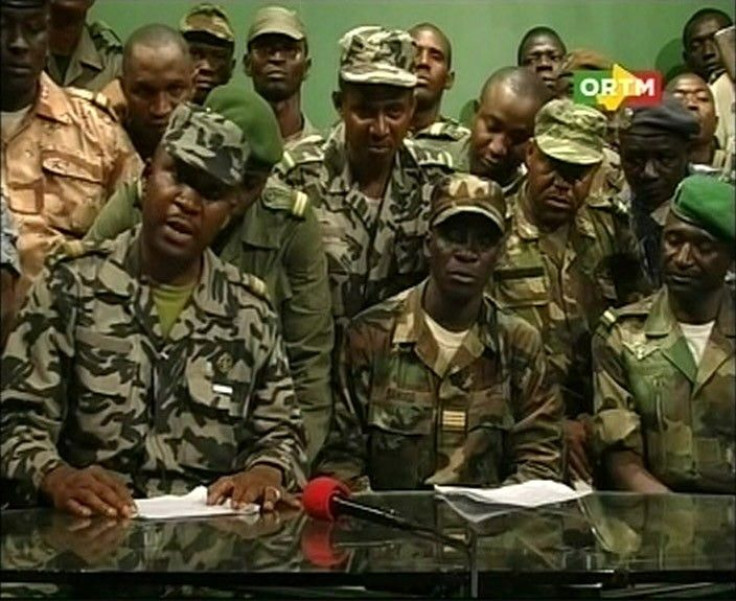Mali Coup Leaders Steer Clear Of Economic Upheaval

Leaders of this week's coup in Mali are making concerted efforts to ruffle as few feathers as possible in the economy, leaving officials in charge of the West African country's financial and economic infrastructure undisturbed.
Mali's domestic media have reported that the mid-level soldiers in charge of the military action have confirmed detaining -- or trying to detain -- a large swath of the nation's political elite, including ministers in charge of foreign affairs, justice, labor, homeland security and telecommunications.
Two leading politicians not currently in office but who are running in Mali's presidential election -- scheduled to occur in less than a month -- are also being held at a military base just west of the capital, Bamako. Coup leaders are detaining the host of a popular political radio show as well.
Notably absent from that list is the minister of mines, Amadou Cisse, as well as officials in charge of trade, energy, education, ranching and finance. Heads of social ministries such as culture, environmental affairs, health, housing, sports and family promotion also appear to have been spared detention.
Despite sparse coverage in major media, international investors have been keeping a close eye on Mali, selling off shares in companies that do most of their business in the country.
Most affected has been international gold miner Randgold Resources Ltd. (Nasdaq: GOLD), whose shares have lost 15 percent and 15.5 percen, respectively, on U.S. and U.K. markets over the past two days. Randgold derives more than 70 percent of its revenue from Mali. South African miner AngloGold Ashanti Ltd. (NYSE: AU) and Toronto-based Iamgold Corp. (NYSE: IAG) have also seen some selling pressure, but not as much as Randgold, one of the top 100 issues on the London Stock Exchange.
Mali is the third-biggest gold producer in Africa, and gold mining represents the major area of foreign investment in the country.
It isn't clear what impact the coup has had outside Bamako and a few northern provinces where mid-level soldiers have also mutinied. All of Mali's international miners have said that operations in their joint ventures, hundreds of miles away from the capital, are continuing as usual.
Not only have coup leaders avoided financially and economically sensitive parts of the government, but the public face of the coup, Capt. Amadou Sanogo, has made it clear the revolution aims to avoid interfering with day-to-day life.
I ask the population to forgive us for any inconvenience caused, Sanogo said Friday, according to Agence France-Presse. He added that the detained ministers are safe and sound and said the government would be back in operation by Tuesday.
We will not touch a hair on their heads. I will hand them over to the courts so that the Malian people know the truth, Sanogo told a news conference.
Such statements could possibly reflect limited power by the coup leaders, who started out as a band of seemingly disorganized mutineers bent on overthrowing the government to get weapons to fight a separatist insurgency in the country's north.
While those leading the action have since made statements vaguely linking the coup to high costs of living and injustice, analysts have noted that Mali is among the most credible democracies in West Africa. The coup, a seemingly ragtag operation by disorganized soldiers, arose not out of economic or social grievances but mainly out of disagreement over how to run the military.
These kids have a lot to prove before being applauded by decent people, Ali Nouhoum Diallo, former president of the National Assembly of Mali, told the Malijet newspaper on Thursday.
There is the possibility of a counterrevolution. While leaders of the coup, including Sanogo, have publicly stated that President Amadou Toumani Touré was in their custody, other sources have been quoted as saying the leader remains in control and is planning his future from the safety of a loyalist compound. Still other reports have suggested Touré is negotiating asylum with the U.S. Embassy in Bamako.
© Copyright IBTimes 2024. All rights reserved.











